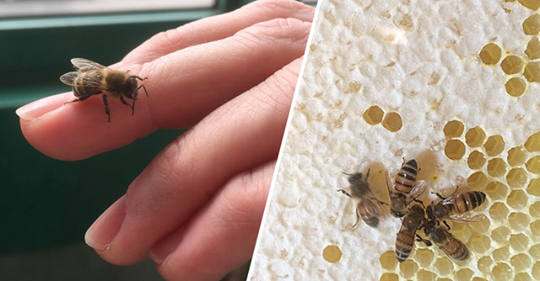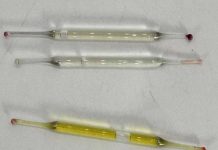You may think they’re annoying at picnics, but it’s time to get on board with the bees as Science Times has confirmed they’re the most important creatures on Earth. A study by the Earthwatch Institute for the Royal Geographical Society of London found a staggering seventy percent of the world’s agriculture depends on the insects, meaning without them, much of the wildlife in the world would begin to disappear. They’re also the only living creature that doesn’t carry pathogens.
In spite of this study, the numbers of bees on Earth are dramatically dropping, with an over ninety percent decline in the past few years.
For all the bee info you’ve ever wanted – plus the steps we need to save these important creatures – keep scrolling.

Unless you’ve been living under a rock for the last year, you may have caught on to the fact that the fuzzy little insects are more important than we’ve been believing.

Bees are perfectly adapted to pollinate, helping plants grow, breed and produce food – They do so by transferring pollen between flowering plants and, as a result, keep the cycle of life turning.

Seventy percent of the world’s agriculture depends exclusively on bees, while pollination – perhaps the most important function of bees – enables the plants to reproduce.
Examples include avocados, soybeans, asparagus, broccoli, celery, squash, cucumbers, citrus fruits, kiwis, cranberries, and melons.

Bees also pollinate around eighty percent of wildflowers in Europe, so our countryside would be far less interesting and beautiful without them.

A study conducted by the Apiculture Entrepreneurship Center of the Universidad Mayor (CeapiMayor) and the Apiculture Corporation of Chile (Cach), with the support of the Foundation for Agrarian Innovation (FIA), concluded that bees are the only living being that does not carry any type of pathogen – regardless of whether it is a fungus, a virus or a bacterium.

Birds and mammals may rely on berries, seeds and also some fruits and nuts that are pollinated by bees.
It also has to be said that even some domesticated animals benefit from pollination too! Cows, for example, eat alfalfa, which is pollinated by bees

This point is often neglected, but many trees are pollinated by bees and some other insects, therefore their survival depends quite heavily on the insects.

In 2010, it was estimated that bees contribute $40 billion per annum. According to the American Beekeeping Federation, honey bees contribute $15 billion to US crop production alone.

As concluded by the Earthwatch Institute at the last meeting of the Royal Geographical Society of London, bees have been placed at the top of the list of the most important living things on the planet.

And it’s all thanks to their major role in our agriculture, environment, economy, and the overall well-being of our planet.

Wildlife experts and scientists have been sad to announce that bees have indeed joined the endangered species list.

And almost ninety percent of the bee population has completely disappeared in the last few years.

This devastating decline can be attributed to the uncontrolled use of pesticides, a lack of natural flowers, and deforestation.










